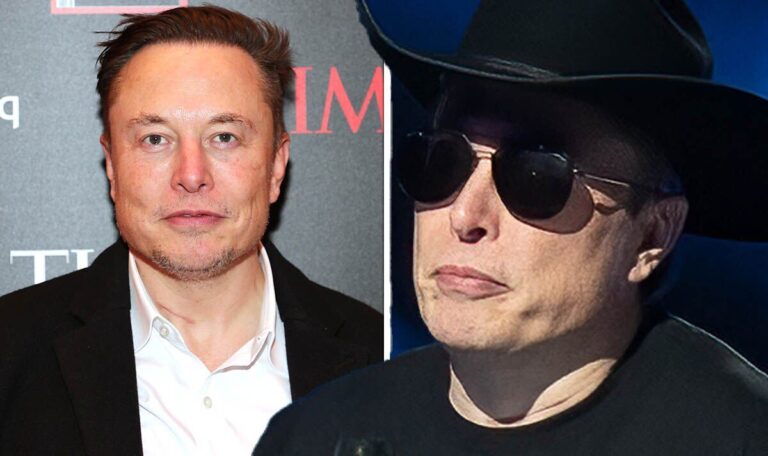
As the wealthiest person in the world, it could easily be assumed that Musk uses the latest technology, works out with the best personal trainer and eats the healthiest diet in order to remain on top condition, but in an interview back in 2021 the business magnate revealed that he prefers not to exercise and would rather eat tasty food over healthy food. The comments from Musk about his own health are made even more surprising after his recent claim that new brain chip technology which can cure morbid obesity and tinnitus is “less than five years away”.
Musk’s claim comes after his brain-machine interface startup Neuralink, which he started in 2016, could allow a computer to directly communicate with the brain – particularly the hypothalamus – to control urges such as appetite, and help people suffering from brain injuries.
Although an elaborate idea currently, Musk said in a TED interview: “The emails that we get at Neuralink are heartbreaking. I mean, they’ll send us just tragic stories.
“Where someone was in the prime of life and they had an accident on a motorcycle and someone who’s 25 can’t even feed themselves. This is something we could fix.”
Seemingly wanting to depend more on technology rather than physical exercise, when talking about his own health, Musk added: “To be totally frank, I wouldn’t exercise at all if I could. I prefer not to exercise.”
READ MORE: Eight Omicron symptoms affecting fully vaccinated – sneezing and fatigue are among them
The Tesla CEO continued to say that although he has a personal trainer, it had been a while since they worked out together, and he sometimes prefers to lift weights on his own.
In addition, instead of going for a run on a treadmill, Musk said that he instead likes to watch TV. He added: “Maybe watch a show that you know if there’s a compelling show that pulls you in.”
In slight contrast to Musk’s comments, the NHS explains that there are multiple benefits of exercise. In fact, exercising regularly can reduce the risk of early death by up to 30 percent.
The health body states that “people who exercise regularly have a lower risk of developing many long-term (chronic) conditions, such as heart disease, type 2 diabetes, stroke, and some cancers.
DON’T MISS:
“Research shows that physical activity can also boost self-esteem, mood, sleep quality and energy, as well as reducing your risk of stress, clinical depression, dementia and Alzheimer’s disease.”
Exercise is particularly important as individuals age, as it can act to protect bones, joints and muscles and keep individuals independent and moving for longer. Specifically, hip fracture is a serious health condition that can have life-changing negative effects, especially if you’re an older adult. However, physically active people have a lower risk of hip fracture than inactive people.
For these reasons, the NHS recommends that adults should try to be active at least every day, and aim to do at least 150 minutes of physical activity over a week, through a variety of activities.
For a type of activity to benefit your health, individuals need to be moving quick enough to raise their heart rate, breathe faster and feel warmer. This level of effort is called moderate intensity activity. If you’re working at a moderate intensity you should still be able to talk but you won’t be able to sing the words to a song.
For harder activity, known as vigorous intensity activity, individuals should be breathing hard and fast. At this level of effort individuals will not be able to say more than a few words without pausing for a breath.
In addition to his confessions about exercise, Musk went on to reveal more about his sleeping patterns, which are usually affected by his hectic work schedule. Admitting that he personally often chooses between “no sleep or ambien [sleep meditation],” he went on to provide some top tips for how individuals can ensure they get a good night’s sleep.
He said: “Eating before you go to bed is a real bad idea, and actually negatively affects your sleep”.
Musk went on to say that he avoids both food and alcohol for at least two to three hours before going to bed. He added: “Your quality of sleep will improve, and your general health will improve a lot. It’s a big deal.”
Research on the issue of eating before bed, Gastroenterologist Dr. David Poppers, MD, PhD stated in the past that digestion does not stop during sleep, however, muscle contractions and stomach motility can slow down, so those that eat a heavy meal before going to bed are more likely to feel nauseous.
In contrast however, according to a 2018 study published in the British Journal of Nutrition, and conducted by Michael Ormsbee, PhD and associate professor of nutrition, food, and exercise science at Florida State University, people who ate 30 grams of protein roughly 30 minutes before bed boosted their metabolism and were less hungry the next morning.
What experts do agree on however, is that eating earlier in the evening can better support circadian rhythms – the body’s internal body clock.
In slight contrast however, eating before bed is linked with metabolic syndrome, a group of risk factors including high blood pressure and belly fat, that increase your chances of developing heart disease or type 2 diabetes. Some research, which involved people who work night shifts, indicated that this group is more likely to have inflammation, oxidative stress, and risk factors for cardiovascular diseases.